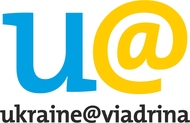Pensées Françaises Contemporaines
Aktuelle Lehrveranstaltungen
Lehre Sommersemester 2024
Lehre Sommersemester 2024
|
Dr. habil. Arnaud Lechevalier |
Europe sociale : trajectoire et enjeux |
Art der Veranstaltung: Seminar
|
Zeit: Donnerstag, 11:15 - 12:45 Uhr Ort: GS 105 Veranstaltungsbeginn: 11.04.24 |
|
Dr. habil. Arnaud Lechevalier |
European economy and policies |
Art der Veranstaltung: Seminar (auf Englisch) |
Zeit: Mittwoch, 11:15 - 12:45 Uhr sowie 09:00 - 18:00 Uhr (23.05.2024 bis 25.05.2024) Ort: GD 07 Veranstaltungsbeginn: 10.04.24 |
Europe sociale : trajectoire et enjeux
Seminarleiter: Dr. habil. Arnaud Lechevalier
Qu’appelle-t-on Europe sociale ? Quelles sont les conséquences sociales des modalités de l’intégration européenne (jalons historiques) ? Réfléchir à la notion de « modèle social européen ». Comprendre un certain nombre de grands enjeux de l’Europe sociale. Parmi celles-ci : l’avenir de la mutualité française dans le contexte de l’UE. S’interroger sur les effets de l’intégration économique européenne sur la dynamique des systèmes nationaux de protection sociale et d’emploi. Analyser le devenir de « l’Europe sociale » au cours de l’actuelle crise de la zone euro et de la crise Covid-19 : un changement de paradigme ?
Seminarsprache: Französisch
European economy and policies
Seminarleiter: Dr. habil. Arnaud Lechevalier
This course will introduce you to the main economic issues of the European integration process, from the treaty of Rome to the contemporary eurozone and Covid-19 crisis, by using an economic and a “political economy” approach.
The lecture begins with an historical perspective on the European integration since 1950, which aims to explain the political economy of the Treaty of Rome (1957) and of the Single Market (1986). Chapter 2 starts with a cost-benefit analysis of a monetary union, then considers the EMU from the perspective of the Optimal Currency Area and finally explains “the road to Maastricht”. The chapter 3 deals with the resulting institutional framework for the monetary policy and national fiscal policy. The aim of the chapter 4 is to highlight the economic roots of the Eurozone crisis thanks to a comparative political economy perspective. Finally, the last chapter explains the main responses to the eurozone and to the pandemic crisis.
Seminarsprache: Englisch




